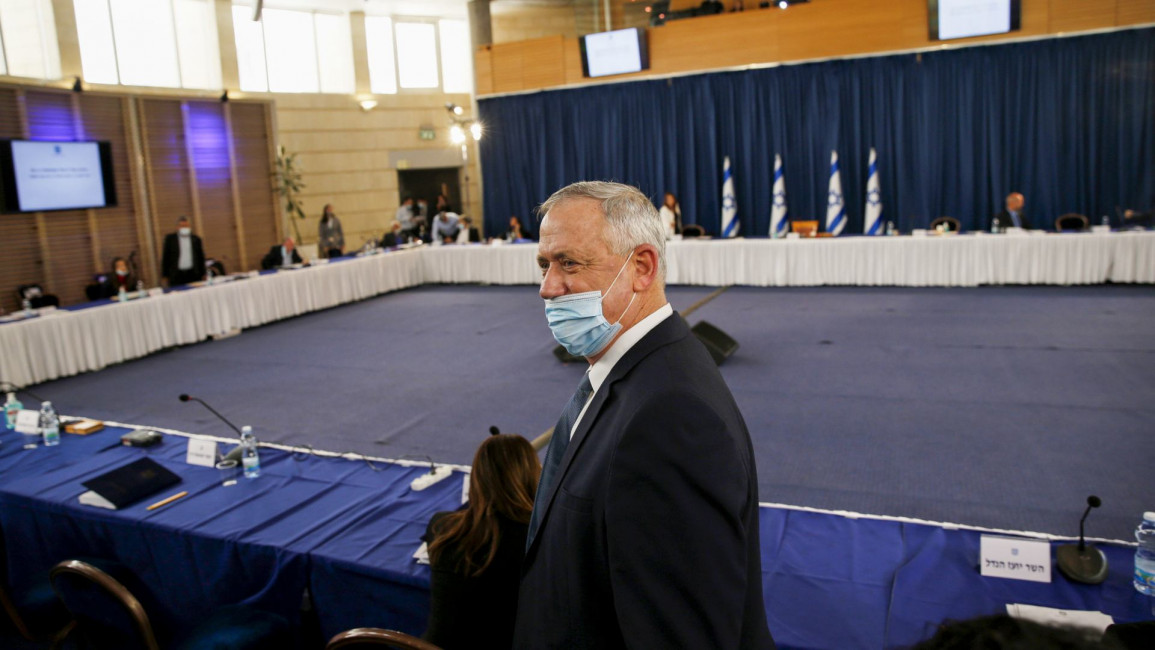Israel's Gantz tells army to prepare to annex the occupied West Bank
Gantz's statement came as Israeli media reported that Prime Minister Benjamin Netanyahu discussed the annexation of occupied Palestinian territories on Monday in a call with Jared Kushner, President Donald Trump's senior adviser and architect of the US peace plan for the Middle East that overwhelmingly favours Israel.
In a statement sent by his office, Gantz appeared to command the military to prepare for the fallout from annexation, asking the military chief of staff to "speed up the [military’s] preparedness ahead of the upcoming diplomatic changes in the Palestinian arena". The statement gave no further details.
Gantz also serves as "alternate" prime minister, expected to replace Netanyahu late next year under a power-sharing agreement as part of the two rivals' coalition deal.
On top of mass protests in the Palestinian territories and beyond, annexation also risks unravelling burgeoning Israeli ties with Gulf Arab states.
One of those countries, the UAE, called on Israel Monday to halt its plan to annex parts of the occupied West Bank - joining a long list of Arab nations that have condemned the expected Israeli move.
The UAE's minister of state for foreign affairs, Anwar Gargash, said on Twitter on Monday that annexing lands sought by the Palestinians would harm the chances for regional peace.
Twitter Post
|
"Any unilateral Israeli move will be a serious setback for the peace process," he wrote on Twitter.
He added that annexation would "constitute a rejection of the international & Arab consensus towards stability & peace".
Netanyahu has announced that he will annex parts of the West Bank, including the Jordan Valley and dozens of Israeli settlements, in line with Trump's plan. An Israeli coalition agreement states that Netanyahu's government can act on its annexation plans from 1 July.
The US plan gives the green light for Israel to impose sovereignty over about one-third of the West Bank, which it captured in 1967. Meanwhile, Palestinians would in theory be granted limited autonomy over the remaining patches of territory.
The Palestinians, who seek all of the West Bank as part of an independent state, have rejected the plan, saying it unfairly favours Israel.
The annexation plan has come under harsh criticism from some of Israel's closest allies, who say that unilaterally redrawing the Middle East map would destroy any lingering hopes for establishing a Palestinian state and reaching a two-state peace agreement.
The UAE is among a group of Gulf Arab countries that does not have official diplomatic relations with Israel, but maintains close behind-the-scenes contacts. This group of countries are expected to play a key role in any potential Trump peace initiative in the region.
Saudi Arabia, another influential Gulf country, recently announced its "rejection" of Israel's annexation plans, despite being consulted in the creation of the Trump plan.
Jordan and Egypt, the only Arab countries with formal peace agreements with Israel, have also condemned the plan.
The Palestinians say they are no longer obligated to honour past agreements with Israel and have suspended security cooperation to protest annexation.
Follow us on Facebook, Twitter and Instagram to stay connected



